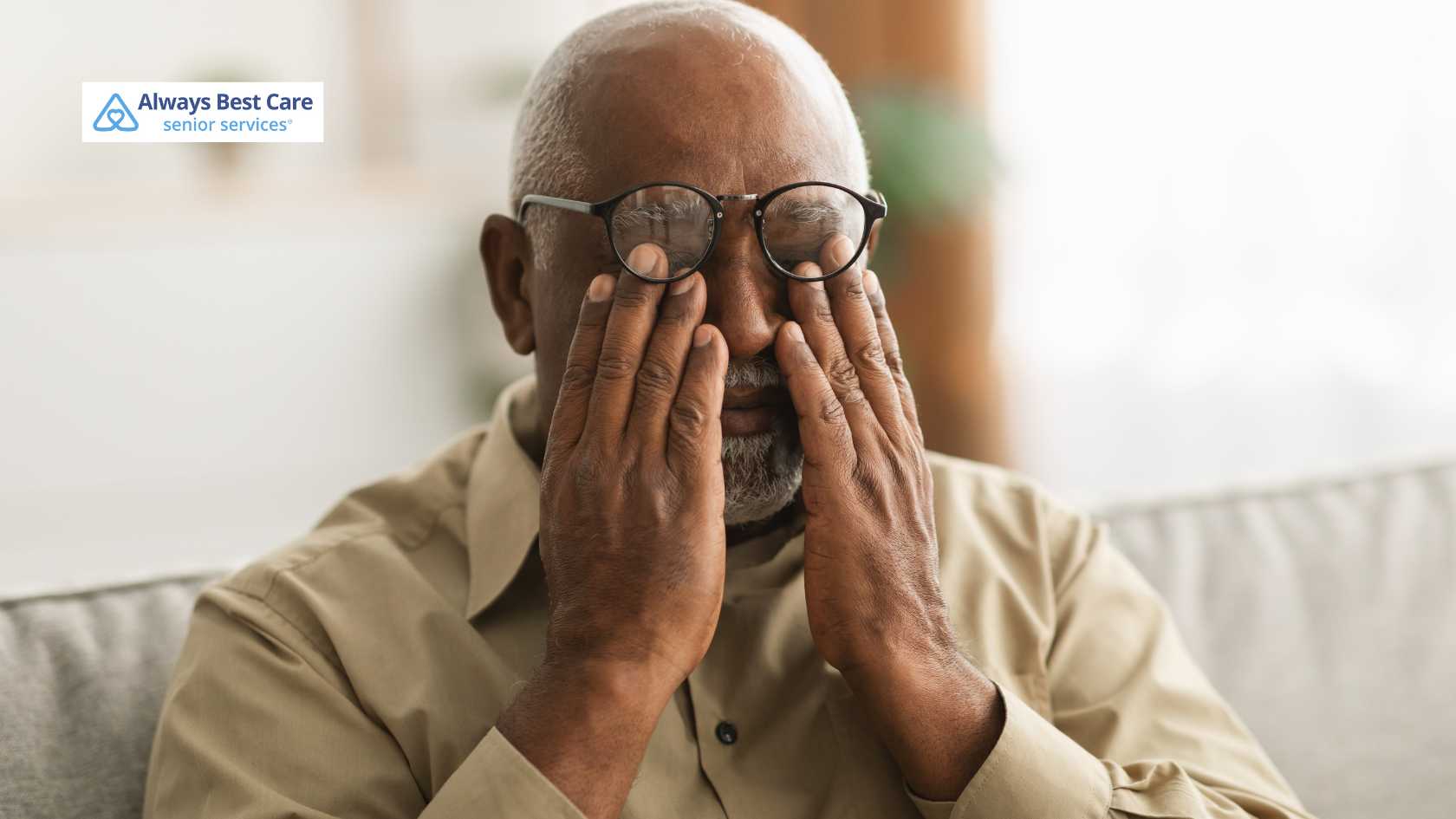How to Maintain Your Quality of Life With Glaucoma

Receiving a glaucoma diagnosis can feel overwhelming, but it doesn’t mean giving up the lifestyle you enjoy.
While glaucoma can impact vision over time, proactive management and healthy habits can help you preserve your independence, stay active, and maintain your quality of life.
By understanding the condition, exploring available treatments, and adopting supportive strategies, you can confidently navigate daily life while protecting your eye health.
In this guide, we’ll share practical tips and insights to empower you to live fully with glaucoma—because maintaining your well-being is just as important as managing the condition itself.
Table of Contents
How In-Home Care Enhances Daily Life With Glaucoma
Even simple daily tasks can become challenging for individuals with glaucoma as their vision changes over time. Our beneficial in-home caregivers provide tailored assistance to ensure clients can maintain a sense of normalcy and independence.
From helping with tasks like medication reminders, reading labels, and preparing meals to offering support during walks or light exercise, caregivers ensure safety while encouraging a fulfilling daily routine. By adapting to each client’s pace and needs, caregivers offer an extra layer of confidence—enabling individuals to focus less on their limitations and more on what brings them joy.
Adapting Your Home for Safety and Comfort
A home environment that supports low-vision needs can significantly reduce risks like falls and disorientation. Our in-home caregivers are trained to identify and implement practical modifications, such as improving lighting, removing tripping hazards, and organizing frequently used items for easy access.
They work alongside clients and families to create a functional and familiar space. Whether it’s marking steps with high-contrast tape, repositioning furniture for clear pathways, or labeling items with tactile cues, these adjustments ensure clients feel secure and comfortable navigating their homes.
Tools and Assistive Technology to Support Your Vision
Modern technology offers numerous tools to help individuals with glaucoma maintain independence, and our caregivers are well-versed in incorporating these into daily life. From magnifiers and large-print devices to voice-activated assistants and smart home tools, caregivers introduce and assist clients in using these resources effectively.
They ensure that devices like talking clocks, medication organizers, or screen readers are properly set up and seamlessly integrated into daily routines, helping individuals engage with the world around them with greater ease and confidence.
Strategies for Driving and Navigating Public Spaces
Losing confidence in driving or navigating public spaces can feel isolating, but our caregivers are here to bridge that gap. They provide reliable transportation to appointments, social gatherings, or errands, ensuring clients remain connected to their routines and community.
Caregivers also act as supportive companions, assisting with navigating unfamiliar locations, reading signs, or helping clients plan trips. By offering safe, dependable alternatives to driving, they empower individuals to continue living actively and without compromise.
Coping With the Emotional Impact of Vision Loss
Adjusting to life with glaucoma can be emotionally challenging, and our caregivers provide compassionate, holistic support to ease that transition. By creating a safe space for conversation, they help clients process feelings of frustration or anxiety about their vision loss.
Caregivers encourage hobbies and activities that bring joy while finding creative ways to adapt them to a client’s changing needs. Through genuine companionship, empathy, and encouragement, caregivers ensure individuals feel understood, supported, and never alone in their journey.
Staying Socially Connected and Independent
Maintaining social connections is key to emotional well-being, and our in-home caregivers play an important role in supporting this. Whether it’s helping clients connect with loved ones through technology, accompanying them to social events, or facilitating phone or video calls, caregivers make staying connected easier and stress-free.
They also encourage clients to remain engaged in their favorite activities, like reading, listening to music, or attending community events. By providing reliable support, caregivers help individuals maintain their social lives, boosting confidence and preventing feelings of isolation.
Building a Routine to Manage Your Eye Health
A consistent, well-structured routine is vital for effectively managing glaucoma. In-home caregivers help clients adhere to treatment plans by providing reminders for medication schedules, eye drops, and doctor appointments.
They also support healthy habits such as balanced nutrition, light exercise, and relaxation techniques, all of which contribute to overall well-being. By managing these essential details, caregivers give individuals the freedom to focus on living life fully while knowing their eye health remains a top priority.
Take the Next Step Toward Peace of Mind With Always Best Care of Calgary NW!
If you or a loved one is living with glaucoma, our compassionate in-home caregivers are here to help you maintain independence, safety, and comfort every day.
Contact Always Best Care of Calgary NW at (403) 812-0778 to learn more and schedule your free consultation. Let us work together to create a tailored care plan that ensures safety, comfort, and an active, enriching lifestyle for your loved one.





